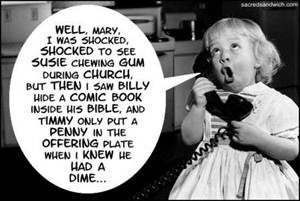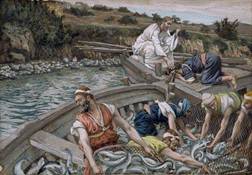September 1 to September 7 - abbey
Main menu:
- Home Page
- Abbey
- Apiary
- Documents
- Monastic
- Spirituality
- Apostleship of the Sea
- Homilies of Pope Francis
September 1 to September 7
“Words can kill”
Where there is God there is no hatred, envy or jealousy, and there is no gossip that can kill. This was the message at the heart of Pope Francis’ homily Monday, September 2, morning as he celebrated Mass in the Casa Santa Marta after the summer break. The Pope first reflected on the day’s liturgical reading which tells of the meeting between Jesus and the people of Nazareth as recounted by the Gospel according to Luke. The people of Nazareth with whom he had grown up, admired Jesus, but at the same time expected great things from him. They wanted a ‘miracle’ to be able to believe in Him. And when Jesus told them they were without faith, they were filled with fury, drove him out of the town, and led him to the brow of the hill to hurl him down headlong.
The Pope first reflected on the day’s liturgical reading which tells of the meeting between Jesus and the people of Nazareth as recounted by the Gospel according to Luke. The people of Nazareth with whom he had grown up, admired Jesus, but at the same time expected great things from him. They wanted a ‘miracle’ to be able to believe in Him. And when Jesus told them they were without faith, they were filled with fury, drove him out of the town, and led him to the brow of the hill to hurl him down headlong.
A situation which had started off with admiration was to end with a crime: they wanted to kill Jesus. ..Because of jealousy and envy. This is not just something that happened two thousand years ago. This kind of thing happens every day in our hearts, in our communities. When somebody new enters a community, on the first day people speak well of him; on the second not so well; and from the third on gossip and badmouthing starts to spread and end up skinning him.
In the first letter of St. John (3, 15) he says: “He who hates his brother is a murderer”. We are used to gossip. But how many times our communities, even our families have become a hell in which we criminally kill our brother with words. A community, a family can be destroyed by envy that sows evil in the heart and causes one to speak badly of the other. In these days, days in which we are speaking so often of peace, we see the victims of arms, but we must also reflect on our daily arms: “badmouthing and gossip”. Every community must live with the Lord and be like heaven. So that there is peace in a community, in a family, in a country, in the world, we must be with the Lord. And where the Lord is, there is no envy, there is no criminality, there is no hatred, and there are no jealousies. There is brotherhood. Let this be our prayer to the Lord: never kill your neighbor with words”. (VIDEO)
“Jesus does not need armies to conquer evil”
“Where Jesus is, there is always humility, meekness, and love.” That was the message of Pope Francis in his Mass Tuesday, September 3. The Pope emphasized the distinction between the “tranquil light” of Jesus that speaks to our hearts, and the light of the world, an “artificial light” that makes us arrogant and proud. Christian identity, is “an identity of light, not of darkness.” Saint Paul says to the first disciples of Jesus: “You, brothers and sisters, are not in darkness . . . you are children of the light.” This Light, is not well-
Christian identity, is “an identity of light, not of darkness.” Saint Paul says to the first disciples of Jesus: “You, brothers and sisters, are not in darkness . . . you are children of the light.” This Light, is not well-
You can know everything, you can have knowledge of all things and this light on things. But the light of Jesus is something else. It is not a light of ignorance, no! It’s a light of wisdom and sagacity. It is something other than the light of the world. The light that the world offers us is an artificial light, strong, perhaps -
It is, a light that “offers and gives peace.” The light of Jesus, doesn’t put on a show. It’s a light that comes into the heart. However, it’s true that many times the devil comes dressed as an angel of light: he likes to imitate Jesus and do good, he speaks to us quietly, as he spoke to Jesus after the fast in the desert. That’s why we should ask the Lord for ‘the wisdom discernment to understand when it is Jesus who gives us the light, and when it is the devil, disguised as an angel of light.’
How many believe they are living in the light and they are in darkness, but they don’t realise it? What is the light like that Jesus offers us? The light of Jesus can be known because it is a humble light, it is not a light that imposes itself: it is humble. It’s a meek light, with the strength of meekness. It’s a light that speaks to the heart, and also a light that offers you the Cross. If we, in our inner light are meek, if we hear the voice of Jesus in the heart and look on the Cross without fear: that is the light of Jesus.”
But if, on the other hand, a light comes that makes you arrogant, a light that brings you to look on others from on high to despise others, -
In today’s Gospel, Jesus cast out the devil and the people are lost from fear in the face of a word that casts out unclean spirits: “Jesus doesn’t need an army to cast out the demons, He has no need of pride, no need of force, of arrogance. ‘What is there about His word? For with authority and power He commands the unclean spirits, and they come out.’ This is a humble word, meek, with so much love; it is a word that accompanies us in the moments of the Cross. Let us ask the Lord to give us today the grace of His Light, and to teach us to distinguish when the light is from Him, and when it is an artificial light, made by the enemy to deceive us.”
Jesus has a promise and a mission for every Christian
At his morning mass on Thursday, September 05, Pope Francis reflected on the different ways in which Christ reveals himself in the life of a Christian, offering support and giving each one a mission. Speaking at his morning mass in the Santa Marta residence in the Vatican, Pope Francis spoke of how when Jesus comes into our lives, he always gives “a promise, a promise that gives comfort, a request for generosity and a mission to be carried out.” He said the gospel account of how Jesus, after the miraculous catch of fish invited the fishermen Peter, James and John to follow him, is an example of this. He promised to make them fishers of men and then invited them to leave everything and follow him. And this is what the apostles did, they left everything
Speaking at his morning mass in the Santa Marta residence in the Vatican, Pope Francis spoke of how when Jesus comes into our lives, he always gives “a promise, a promise that gives comfort, a request for generosity and a mission to be carried out.” He said the gospel account of how Jesus, after the miraculous catch of fish invited the fishermen Peter, James and John to follow him, is an example of this. He promised to make them fishers of men and then invited them to leave everything and follow him. And this is what the apostles did, they left everything
Pope Francis says “Jesus never asks us to follow him without telling us what our mission is. It’s not like a show to go along the path of Jesus. We follow him to do something and that’s our mission.”
Concluding his homily the Pope spoke of how these three things; promise, request and mission are linked to prayer. A prayer without a word from Jesus and without faith, or a promise, is not a good prayer,” he said. “There is no prayer in which Jesus does not inspire us to do something.
Relationship between Christ and the Church essentially ‘nuptial’
The Christian ought always to be joyful as one who goes to a wedding. This was the message of Pope Francis in his remarks following the Gospel at Mass on Friday, September 6. The Holy Father further stressed the need to overcome the temptation to put the novelty of the Gospel into old wineskins, and repeated that the Sacrament of Matrimony is the image of Christ’s union with the Church. When the bridegroom is present, there can be no fasting, no sadness. Luke shows the Lord often returns to this image of the Bridegroom, showing us the relationship between himself and the Church as essentially nuptial. I think, precisely this is the most profound reason for which the Church has such great care for the Sacrament of Marriage. It is a great sacrament – for it is truly the image of the union of Christ with His Church. There are two attitudes that the Christian ought to have in this nuptial relationship: first, that of joy, because nuptials are a great celebration.
When the bridegroom is present, there can be no fasting, no sadness. Luke shows the Lord often returns to this image of the Bridegroom, showing us the relationship between himself and the Church as essentially nuptial. I think, precisely this is the most profound reason for which the Church has such great care for the Sacrament of Marriage. It is a great sacrament – for it is truly the image of the union of Christ with His Church. There are two attitudes that the Christian ought to have in this nuptial relationship: first, that of joy, because nuptials are a great celebration.
The Christian is fundamentally joyful. For this reason, at the end of the Gospel, when they bring the wine, when he speaks of wine, it makes me think of the wedding at Cana – and for this reason Jesus works His miracle – this is why Our Lady, when she realized that there was no more wine… but if there is no wine there is no party ... imagining that the wedding feast might therefore end with the drinking of tea or juice: it would not do ... it is a feast, and Our Lady asks for the miracle. Such is the Christian life. The Christian life has this joyfulness of spirit, a joyfulness of heart. “
There are truly moments of crucifixion, moments of pain – but there is ever that profound peace of joy, because Christian life is lived as a celebration, like the nuptial union of Christ with the Church. Some of the early martyrs went to their martyrdom as persons going to their wedding: even in that moment, they had a “joyful heart.” The Church, is joined to the Lord as a bride to her bridegroom, and at the end of the world there shall be the definitive celebration.
The second attitude, which the Christian ought to adopt, we find in the parable of the wedding feast of the son of the king. Everyone is invited, good and bad alike. When the feast begins, the king looks on those who have not donned their wedding garments. We begin to wonder, ‘But, Father, how? These were found on street corners, and you ask of them a wedding garment? This is wrong ... What does this mean? It is very simple! God asks only one thing of us in order that we gain admittance to the feast.. our ‘all’. The Bridegroom is the most important. The Bridegroom fills all! This brings us to the first reading, which speaks so powerfully of Jesus as the all -
Jesus is also the Head of the Body of the Church: He is the principle. God gave to him fullness, totality, in order that, in Him, all things might be reconciled. If, therefore, the first attitude is celebration, the second attitude is [that of] recognizing Him as the One. The Lord, asks us only this: to recognize Him as the One Bridegroom. He is, always faithful, and asks fidelity of us. This is why when we desire, to have a little party of our own, which is not that great feast, it does not do. The Lord tells us that we cannot serve two masters: one either serves God, or the world.
This is the second Christian attitude: to recognize Jesus as the whole, the center, the totality. But we will always be tempted to cast this newness of the Gospel, this new wine, into old attitudes ... It is sin, we are all sinners. Only recognise it: ‘This is a sin.’ Do not say this goes with this. No! The old wineskins cannot hold the new wine. This is the novelty of the Gospel. Jesus is the bridegroom, the bridegroom who weds the Church, the groom who loves the Church, who gives his life for the Church. Jesus is the one who makes this wedding feast! Jesus asks us the joy of festivity, the joy of being Christians. He also asks of us the all: it’s all Him. If we have something that is not of Him, repent, ask for forgiveness and move on. May the Lord give us, to all of us, the grace always to have this joy, as if we were attending a wedding. And also have this faithfulness to the only bridegroom, who is the Lord.
Overcome the temptation to be "Christians without Jesus"
Christians must never forget that the centre of their life is Jesus Christ. That was the message of Pope Francis at Mass Saturday September 7. The Pope emphasised that we must overcome the temptation to be “Christians without Jesus” or Christians that seek only devotions, without Jesus. Pope Francis dedicated his whole homily to the centrality of Jesus in the life of the Christian. “Jesus,” he said, “is the centre. Jesus is the Lord." And yet, this is not always understood well. It is not easily understood. Jesus is not a lord of this or that, but is ‘the Lord’, the ‘only Lord.’ He is the centre that regenerates us, grounds us: this is the Lord, ‘the centre.’ The Pharisees of today’s Gospel, make so many commandments the centre of their religiosity. Even today, if Jesus is not at the centre, there will be many other things, so that we meet many Christians without Christ.”
Pope Francis dedicated his whole homily to the centrality of Jesus in the life of the Christian. “Jesus,” he said, “is the centre. Jesus is the Lord." And yet, this is not always understood well. It is not easily understood. Jesus is not a lord of this or that, but is ‘the Lord’, the ‘only Lord.’ He is the centre that regenerates us, grounds us: this is the Lord, ‘the centre.’ The Pharisees of today’s Gospel, make so many commandments the centre of their religiosity. Even today, if Jesus is not at the centre, there will be many other things, so that we meet many Christians without Christ.”
“For example, those who have the sickness of the Pharisees and are Christians that put their faith, their religiosity in so many commandments, so many. ‘Ah, I have to do this, I have to do this, I have to do this. Christians of this attitude . . . ‘But why do you do this?’ – ‘No, it must be done!’ – ‘But why?’ – ‘Ah, I don’t know, but it must be done.’ And Jesus – where is He? A commandment is valid if it comes from Jesus: I do this because the Lord wants me to do this. But if I am a Christian without Christ, I do this and I don’t know why I have to do it.”
There are other Christians without Christ: those who only seek devotions . . . But Jesus is not there. If your devotions bring you to Christ, that works. But if you remain there, something’s wrong. There’s another kind of Christian without Christ: those who seek things that are a little uncommon, a little special, that go back to private revelations, while the Revelation concluded with the New Testament. Pope Francis warned about the desire of these Christians to go to “a spectacle of revelation, to hear new things. But, take the Gospel!”
But Father, what is the rule for being a Christian with Christ, and not becoming a Christian without Christ. What is the sign of a person that is a Christian with Christ?’ The rule is simple: only that which brings you to Jesus is valid, and only that is valid that comes from Jesus. Jesus is the centre, the Lord, as He Himself says. Does this bring you to Jesus? Go ahead. Does this commandment, this attitude, come from Jesus? Go ahead. But if it doesn’t bring you to Jesus, and if it doesn’t come from Jesus, but . . . if you don’t know, it’s a bit dangerous.”
And again “What is the sign that I am a Christian with Jesus?” The sign, is simple. It is the sign of the one born blind that prostrated himself before Jesus to adore Him: But if you aren’t able to adore Jesus, you’re missing something. A rule, a sign. The sign is: I am a good Christian, I am on the path of a good Christian if I do that which comes from Jesus and if I do that which leads me to Jesus, because He is the centre. The sign is: I am capable of adoring, the adoration. This prayer of adoration of Jesus. The Lord makes us understand that He alone is the Lord, the unique Lord. And He gives us, too, the grace of loving Him so much, of following Him, of going along the path that He has shown us.